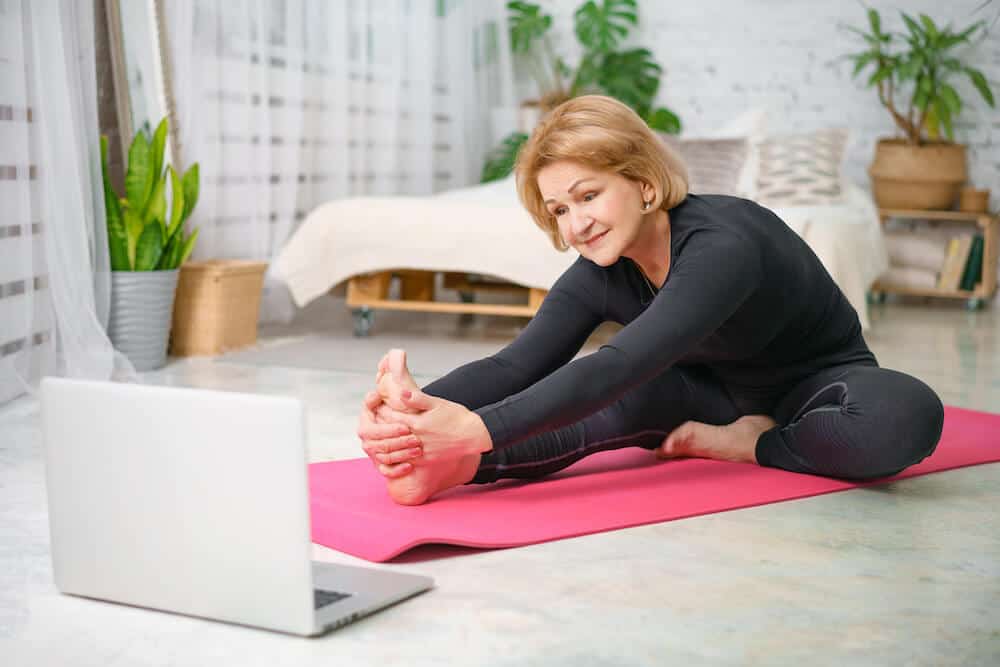Have you long dreamt of retiring? Are you looking forward to a world where you are no longer obliged to work? Where every day is yours to do with as you please. But now retirement is real, it is not what you thought it would be. Freedom from every day work obligations may not live up to what you thought. This can leave you feeling lost and depressed after retirement.
According to Beyond Blue, between 10 to 15% of retirees experience depression. And this rises to 35% for people living in aged care.
Transitioning to retirement can be difficult. You may feel lost but know you are not alone. There are many issues you can face when you retire including depression and anxiety. When your identity is tied to your job then you may question who you are now when you stop working. You may also have less money but more time on your hands.
While retirement can be exciting, it can also be daunting. It is a time to start a new phase in your life. A time to meet new people, relax and do the things you always dreamed about. There is no need to worry your days will not have as much purpose now you no longer go to work. You just need to be proactive in living your life to the full. But give yourself time to figure out how to spend your new found freedom. After decades of working, you now have the time to try out different things to find out what you really want out of life. You have the freedom and time to design the type of life you want.
Here are some ideas to help you fill your days.
Identify why you feel lost
There can be many reasons why you feel lost and down after retiring. You may feel you no longer have a sense of purpose now you no longer go to work every day. Or you may not be spending as much time with family and friends as you thought you would. And this can cause you to rethink your retirement. For some it may be the disruption to your household and routine that is difficult to get used to.
Think about what is causing you to feel down and lost. It can be one or a combination of things. And if you have trouble working it out, keep a written record of your thoughts and feelings to identify any patterns that occur over and over again.

Create a retirement schedule
Once you retire you have a clean slate. There is no schedule for what you are going to do or achieve each day. And without one it can leave you feeling lost and blue.
Create a retirement schedule. Schedule in plans for each day. Include a regular time to get up each morning, set goals to achieve or activities to enjoy for each day. Even schedule in the housework and mealtimes. It can be too easy to waste away the hours every day when you do not have a routine and this can leave you feeling lost and depressed.
Maintaining a schedule will give you a sense of purpose and achievement no matter what you plan to do.
Discover a new purpose
Having a sense of purpose is important for good mental health. It gives your life meaning and a reason to get out of bed each day. Just because you retired from your day job does not mean you cannot discover a new purpose in life. It is never too late.
Discovering a new purpose can be fun. It allows you to experiment and try new activities so you can gauge how you feel. Try a new hobby, volunteer, take up a creative project or find a way to contribute to the world, your family, friends or local community. The world is your oyster and the choice is yours. You never know what you will discover until you try.

Remove financial stress from your life
When it is your finances that cause you to feel lost or down, remove the financial stress from your life. There are a lot of things you can do to change that. Supplement your retirement savings with freelance work, start a small one-person business or even work part-time. Or even start working part-time in your career before you retire so you can continue afterwards.
Removing financial stress from your life gives you the freedom to do whatever you want to do. And continuing to work, in some capacity, gives you the structure you need. It is also good for your mental health, self-esteem and confidence.
Focus on staying in shape
Worrying about your physical health is a sure way to negatively affect your mental health. Have regular check-ups for early detection of serious illnesses that way there is no need to worry about developing a serious illness. And focus on staying in shape. You have the time to take care of your body so make it a priority. Did you know your physical and good mental health have a connection?
Take up regular walking or exercise, tai chi, yoga, try a new physical activity, swimming or go to the gym. Eating a balanced diet, drinking plenty of water and getting enough sleep all have a positive impact on your mental health. In retirement you have the time to exercise, and to plan and cook nutritious, delicious homemade meals.

Grow your network of friends
Retiring can put you at risk of isolating yourself from the world and this can cause depression. To avoid this, make weekly plans to meet up with friends for a lunch, dinner or coffee date, as an exercise partner or to go shopping.
If you do not have enough people in your life, go out and meet new people. Check out programs at your local community centre or find a group of likeminded people who share your hobbies, for example. Try new activities. Meetup is a good place to start. It lists meetups of all types in your local area.
Other things you can try to grow your network of friends includes:
- Reconnecting with old friends.
- Going to concerts, plays and festivals.
- Visiting places you love or have never been to before.

Volunteering can give you a new purpose
When you feel lost, maybe volunteering can give you a new purpose. There are so many organisations and people that need help.
Volunteering is a great way to use your time productively. It is a good way to meet likeminded people to expand your social network. Helping others gives you a sense of purpose. It is good for your mental health, lowers the risk of hypertension and improves your heart health.
Help out at your local library, fundraise for a charity, cook meals for the homeless, drive elderly people to appointments or help out at your local school. The list of people and organisations looking for volunteers is endless. Choose something that attracts you or fits with your skills. Contact your local council for help finding organisations that need volunteers in your area.
Learn something new
Retirement is a great time to learn something new. You have the time. Stimulating your mind is a fantastic way to ward off depression. Sign up for a university course, for online classes or take a short course through open learning where you can learn something new that interests you. And if you are not ready to make a commitment, check out TED Talks for fascinating lectures on almost any subject. You will be glad you did.
Be creative
Get creative. Find a creative activity that interests you. Painting, dancing, drawing, writing, sewing, cooking or making o building things. Rise to the challenge of learning a new skill or doing something you have never had time for before, but have always wanted to try.
When you are creative, it absorbs your full concentration and allows you to access a state of flow that takes all your focus. Creating something will give you a sense of fulfillment.
Gardening is satisfying
Get out into the garden. There is nothing more satisfying than seeing the results of your labour when your plants grow over time. Even put in a vegetable garden and enjoy the amazing fresh produce you grow.
Gardening is good for your mental health and great physical exercise. It does not matter if you have only a terrace, you can create a pot garden to grow what you need. But if you have a large garden, you can create a wonderful place full of plants, flowers, trees and vegetables to attract the bees. It will give you a relaxing place to enjoy at home.

Get out of town
If retirement is leaving you lost and feeling down, get out of town. Try a change of scenery. Maybe new surroundings will inspire you.
Take an extended vacation in the country, the mountains or by the sea. Extended rentals in the off season can be inexpensive and it is good for the soul. It can help you find new purpose in life and meet new people. You will return home feeling refreshed and more positive about how to spend your retirement.
Welcome a pet into your life
Welcome a pet into your life if you do not already have one. They are fantastic for your mental and physical health. A pet makes a good companion and a dog can help you to get out and exercise regularly. Where a pet is not an option, consider volunteering for your local animal rescue. This way you get the benefit of spending time with animals without the need to own one.

We are here to help
When depression affects you, it may be hard to overcome especially when you retire. Dealing with depression is tough. Even when you have support, you may feel people do not really understand or it is not enough. And when you are taking medication, sometimes you may need something more. If you are struggling, consider reaching out. When you are not coping, contact us to find out how we aim to help get your life back on track. But if you reach a crisis point, call us immediately. We are here to help support you through a crisis and may be able to help you quickly deal with things better.
We can work with you over the phone, via Skype or in our Spas. Book in today for my Emotional Empowerment Program. I have an introductory offer for just $79 so you may start taking back control of your life. We aim to support you to help you cope with the challenges of retirement, and depression and feeling lost. Our help may alleviate the effects of mental health issues so you look forward to your retirement years filled with happiness and joy.
Let me help alleviate the effects of mental health issues
My Emotional Empowerment Program has helped many people like you deal with all types of mental health challenges for more than a decade. We may help you move through and deal with depression which may be stopping you from enjoying your retirement. My aim is to help you replace depression with a new hope for the future filled with happiness, peace and contentment in weeks not years. Listen to what Jeannette has to say about my program after only a few sessions.

